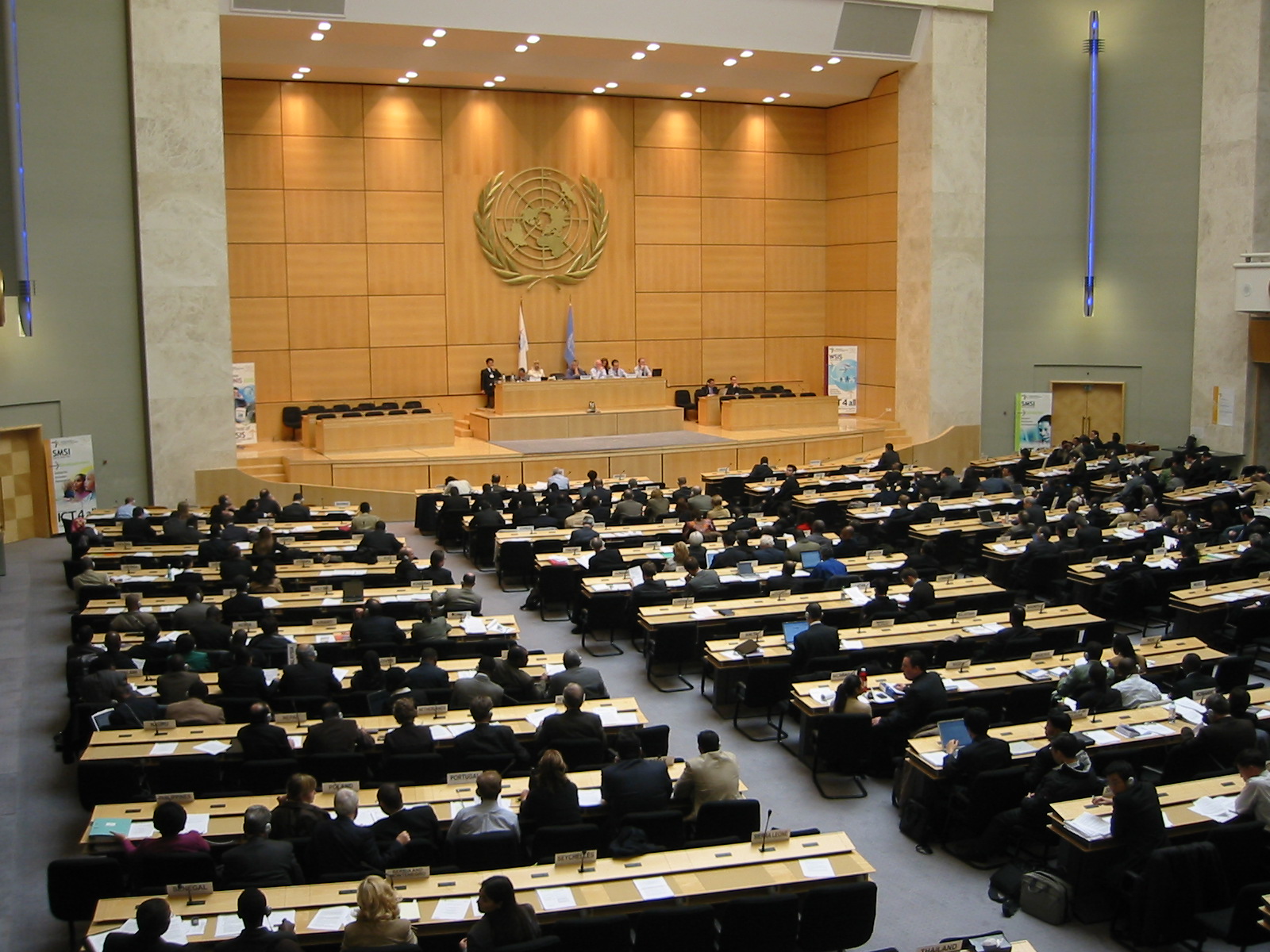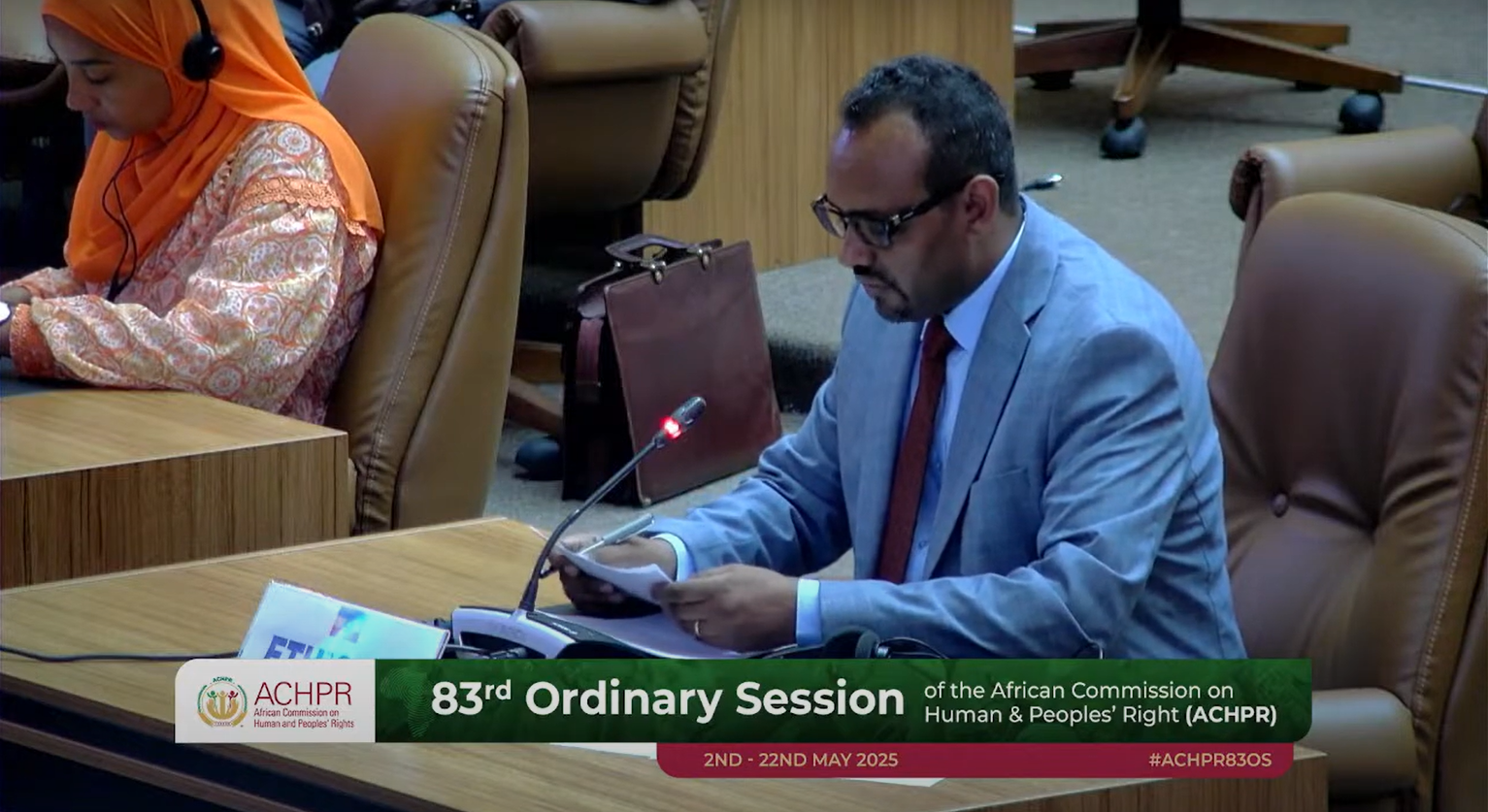In January 2024, Ethiopia submitted its combined State report under article 62 of the African Charter, covering the seventh to tenth reporting periods, which ran from 2015 to 2023 inclusively. The combined State report was supposed to have been reviewed by the African Commission during its 81st ordinary session in October-November 2024, but this was postponed to the 83rd ordinary session in May 2025. Ahead of the review, ISHR, along with a number of other NGOs, submitted a civil society report highlighting recent attacks on civil society organisations and calling on halting the crackdown on independent civil society and dissenting voices across the country.
During the presentation of its State report on Friday 9 May, Ethiopia outlined efforts to improve the human rights situation in the country. On freedom of expression and access to information, Ethiopia highlighted reforms to the legal framework governing the media and the release of political prisoners since 2018. On freedom of association and freedom of assembly, Ethiopia emphasised the adoption of a new law on civil society organisations and a new corresponding authority.
Following the presentation of Ethiopia’s State report, the members of the African Commission asked questions. The Chairperson of the African Commission, Special Rapporteur on Human Rights Defenders and Focal Point on Reprisals in Africa, Commissioner Rémy Ngoy Lumbu, asked, among other things, about: (1) the mandate, composition, functioning, and guarantees of independence of the new civil society organisations authority; (2) the application of a notification rule or an authorisation rule to freedom of assembly; (3) restrictions, if any, to freedom of assembly in Ethiopia currently, especially in light of the repression of peaceful protests in Addis Ababa during summits of the African Union; (4) the degree of domestication of the African Commission’s guidelines on freedom of association and assembly, notably when providing human rights training to law enforcement officers; (5) specific measures taken to protect human rights defenders in the country against human rights violations; (6) whether Ethiopia is considering adopting a human rights defenders protection law, in line with the African Commission’s recommendations to member States; and (7) Ethiopia’s response to the African Commission’s letter of urgent appeal, various public statements, and outcomes of the commission of inquiry relating to the situation in the Tigray region.
On Monday 12 May, Ethiopia provided its responses to the members of the African Commission. It plainly said that there were ‘no major challenges related to journalists and human rights defenders’. Ethiopia further rejected the fact that people were being detained for their criticism of the government, instead claiming that such individuals, including ‘journalists, human rights defenders, and politicians’, were instigating ‘violence’ and committing ‘crimes’ and, as Ethiopia sought to justify, were being investigated as such, ‘not for the political activities’.
Ethiopia further explained that the new civil society organisations-related authority is tasked with registering civil society organisations, assisting organisations with their operations, conducting research on civil society organisations, preventing money laundering and terrorism financing, oversee the dissolution of organisations, manage the civil society fund, and promote volunteerism. The agency’s board is made up of 11 members and includes civil society representatives designated by the government. The State asserted that the agency sought collaboration with civil society rather than the exercise of excessive control.
Regarding freedom of assembly, Ethiopia explained that the applicable rule is that of notification, not authorisation, and that ‘there is no restriction on the right to freedom of peaceful assembly in Ethiopia’. Ethiopia further explained that police officers have been trained on international standards regarding freedom of assembly.
Ethiopia did not respond to the question of a specific human rights defenders protection law nor to the question of specific human rights defenders protection mechanism.




